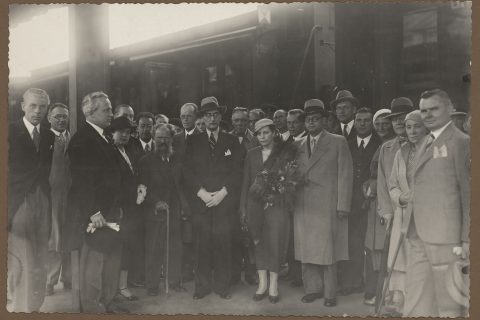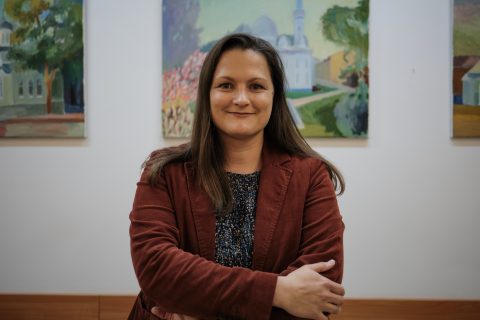Historian Linas Venclauskas, who defended his doctoral thesis at Vytautas the Great University fourteen years ago, is well known to those who discovered the memory and values nurtured by the Sugihara House.
Monograph titled Tekstų byla. Lietuvių antisemitinis diskursas nuo XIX a. antros pusės iki 1940 metų (Case of Texts: Lithuanian anti-Semitic Discourse from the second half of the 19th century to 1940) appeared in the bookstores right before the New Year. It analyzes Lithuanian periodicals from the very first issue of Aušra. From the observations about Jews that start fidgeting when Lithuanians attempt to do business and our language that is better than others; from considerations about a certain religion that poses a threat to Christians and an unusual appearance to the first Soviet occupation with quotes from police reports about real conflicts. The historian presents the often-uncomfortable topics in a proper and meticulous way. The book is almost 500 pages long, with over 800 footnotes! His study is important for those seeking to understand the price of the phenomenon of a newly and lovingly created nation-state, which we still pay today. Even though there is a legal term in the title, no one is on trial. Although the book is full of excerpts from unsigned texts in the press, we want to start the conversation with surnames. The book discusses the vocabulary Motiejus Valančius uses in his essays and analyzes where Vincas Kudirka’s attitudes came from.
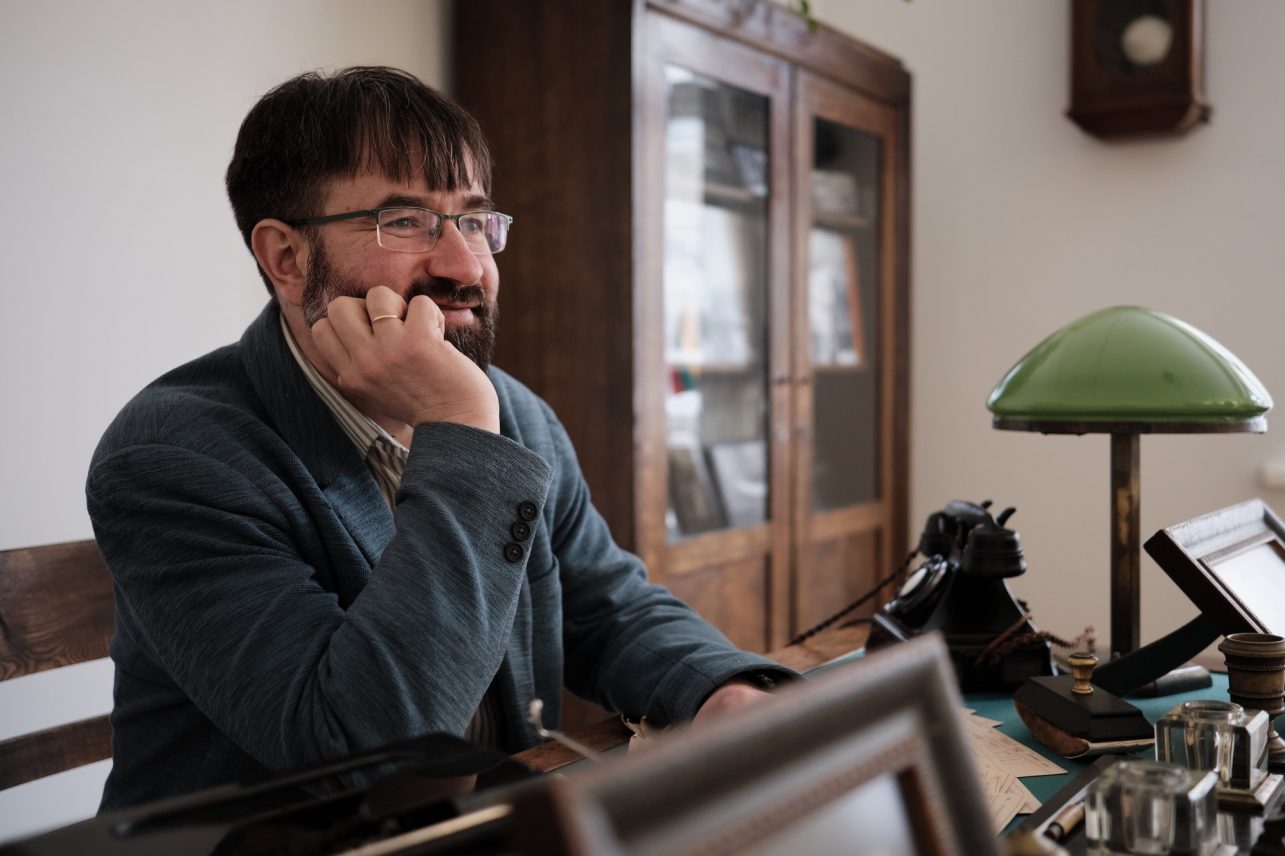
Linas, why is it so uncomfortable to read about the people who did so much for the Lithuanian nation and mentality in this context? Are we afraid to dethrone our heroes? One of the first chapters is titled: “The Case of Varpas and the Antisemitism of Vincas Kudirka.” We should probably distance ourselves from today’s context and evaluate their thoughts in the context of the 19th century, the context of awakening Lithuania, right?
The key word in your question is ‘heroes’. We imagine that heroes must be noble, stable, and know what they are aiming for. However, heroism comes along a winding road with both ups and downs. The New Testament writes that Christ was also tempted, but no one doubts his divinity. In the same way, our heroes must be accepted with all the nuances: Kudirka wrote anti-Semitic publications, and expressed anti-Semitic views, but was not a systematic anti-Semite. His purpose in life was not to show the badness of the Jews, or their otherness, by promoting dissociation or anything like that. Therefore, I suggest considering him and Valančius in the context of their whole oeuvre. Their anti-Semitic statements fit into the general project of the future of Lithuania. In Kudirka’s understanding, the one who does not work for the good of Lithuania, giving themselves to the cause completely, sacrificing themselves for the re-establishment of Lithuania, deserves criticism. He also criticizes Lithuanians and, of course, the tsar’s administration. There is some rather strong rhetoric about Jews, after all, Kudirka read Polish periodicals in which the images were harsher. Kudirka spoke this way in order to achieve his goal, which was to arouse patriotism. In several Varpas publications, he criticizes the Jewish elite for paying too little attention to the education of their community. He equally criticized Lithuanians for that.
It’s easier to identify with the hero when you see they have doubts. Kudirka’s conversion from Polish to Lithuanian culture is also important – it’s like an awakening. The religious term for that would be neophytes – the new believers, who had just discovered something are much more zealous than long-time practitioners.
While reading the quotes from the periodicals that you provided, I noticed a recurring motif. It is as if someone else – in this case a Jewish businessman – is always to blame for the fact that I, that is, a villager (not necessarily only in Lithuania), is not doing well. It seems like such a human thing, to try to make someone else responsible for something you can’t or don’t try to do yourself, and then to present yourself as a victim. And such things, and putting the blame on others, lead to tragic events, as history has shown. Why?
Yes, it is one aspect of our psychology. A significant part, apparently, is also a feature of the subconscious, which we have no control over. When we keep planning, we often forget that we are irrational, we act spontaneously even in everyday situations and then have a hard time explaining why. In more radical situations, that one step is enough to start the collapse. That desire to seek something outside of oneself is completely natural. As Umberto Eco has said – although this conclusion made me sad – if we lived in an ideal society, we would still have to create a reflection.
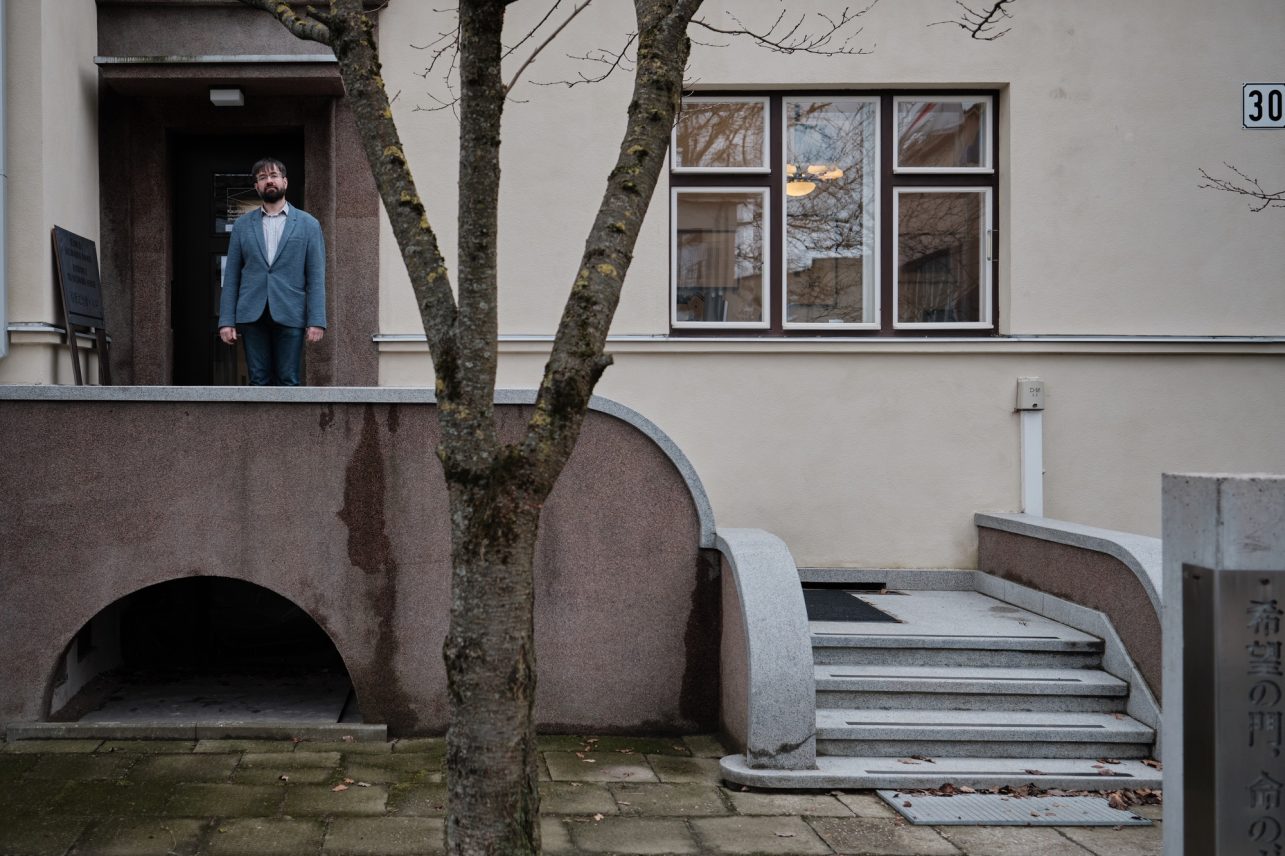
Only the mature and strong can see their mistakes, accept them and learn from them. We react when something hinders us or prevents us from doing something: the government is bad, and we are oppressed by the system. We rarely go deep in self-analysis. This aspect is shared by all humans. When the Nazis came to power, systematically promoting anti-Semitism, it was also said: if the Jews are removed from our environment, we will immediately move forward in a light year, because they are the main hindrance.
Why so many of the articles you cite were not signed? In this case, the rhetoric is often stronger than when you have to take personal responsibility for the ideas you spread.
Around 1930, the names and surnames in periodicals increased. But, from a historical point of view, the Lithuanian press started to be published illegally, so it is natural that the authors could have been punished if they gave their real names. You also have to keep in mind the changing norms. In the past, you could just say more. If you say something about the majority today, you might simply be called a fool but if you speak ill about a minority group – it does not matter what kind – it is considered hate speech.
I have another difficult question. Why do people behave differently in the face of the same catastrophe? Why are some affected by systemic propaganda and not others? Some Lithuanians obeyed the occupiers, killed, looted property, and others rescued people. It is difficult to attribute that to education only because many ordinary people rescued others as well.
It is not just a good question but also an eternal one. Perhaps if we answered it, we might even receive a Nobel Prize [smiles]. It’s complicated. We tend to perceive the world quite schematically. If someone is a hero, then they must be holly. We also accept the forms of coexistence differently. For some people, the anti-Semitic discourse did not encourage aggression, perhaps only distancing or a reminder that if I am not successful, it is because my neighbor has it better.
One bullet and one person are enough to take a life.
Apparently, the knowledge that this is Lithuania, created by us primarily for Lithuanians, has accumulated and people asked why they have to live worse in their country than others. By the way, Smetona’s contribution is worth mentioning. Vytautas Toleikis wrote that Smetona did not really accept the word ‘foreigner’. Lithuanians were the main nation of Lithuania, so he suggested the term ‘ethnic minority’. It is someone who is not foreign, just different. But maybe not everyone thought so.
But when it comes to that sad part, about the Holocaust in Lithuania, I support the position that the first Soviet occupation had a great influence. Timothy Snyder aptly argued that where the tradition of statehood is lost, confusion and a sense of guilt settle in, and then the people start looking for something or someone to blame. For example, in Poland and Romania, anti-Semitism was stronger and even organized socially, partly politically. After all, there was no prominent political anti-Semitic power in Lithuania. And the results of the Holocaust are more brutal. The loss of independence, I think, had a big impact, society experienced a certain shock. Jews were accused of selling Lithuania out.
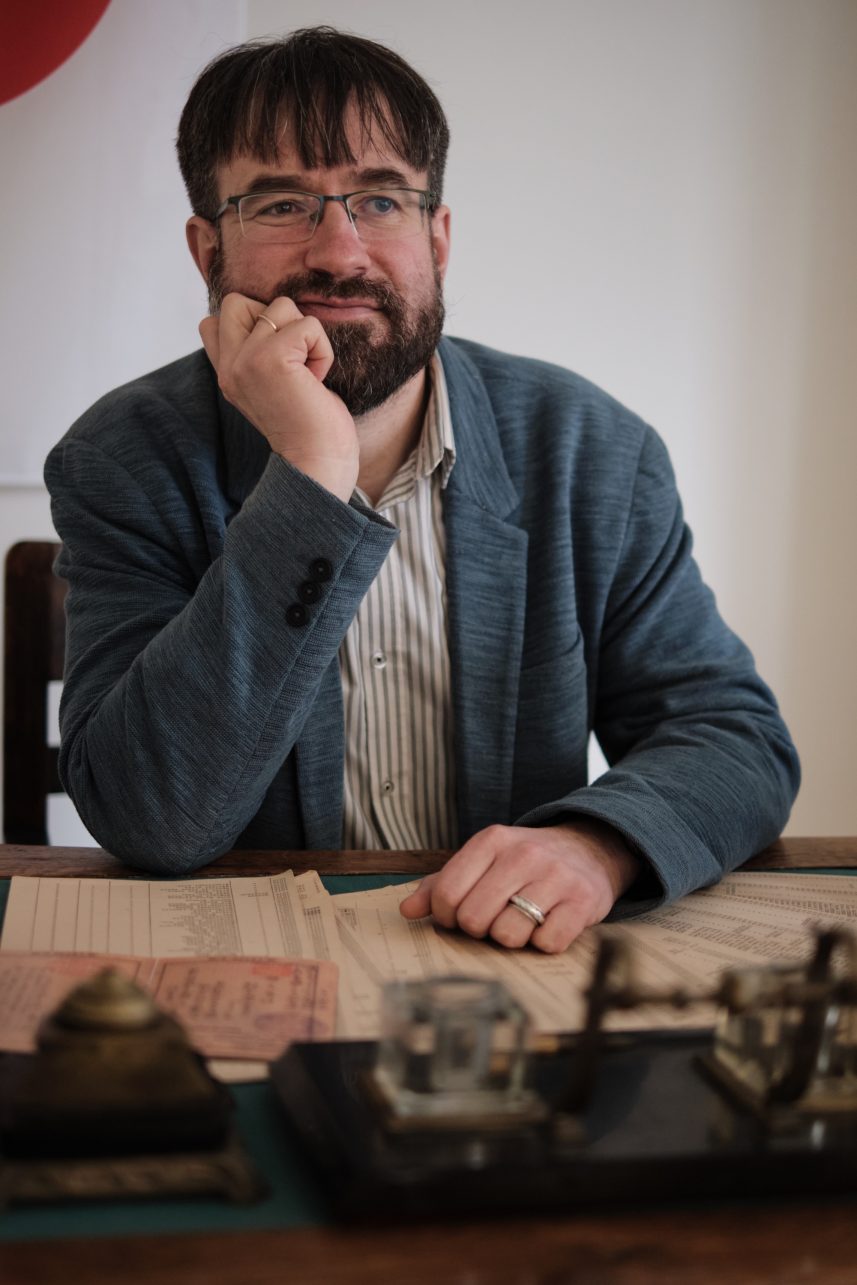
Because of propaganda, all the information you receive settles in the subconscious, you never know when it will be triggered, when one prompt will be enough. For example, we have a recorded episode from Šančiai. Usually, a Lithuanian person went to a Jewish neighbor to borrow money. Often intoxicated. One person goes to the Jewish neighbor during the first Soviet occupation and the Jewish man tells him, “I will not give you anything.” And then the Lithuanian answers, “You, ugly Jewish mug, you are in power now, but when our turn comes, you will pay for this.” It was a relatively short period, but it cannot be restored or changed in any way. A Boy Scout motto would be appropriate here, “Be on the lookout!”
One bullet and one person are enough to take a life. It is often a spontaneous decision, but it damages the psyche. But to save a life… The rescuers of Jews usually did not act alone, there were certain networks. Greater risk, greater uncertainty, greater challenge. In fact, paradoxically, it is easier to kill someone than to save them. We have to realize that.
Why did some behave one way and others differently? As you have noticed, things were complex. One sociologist interviewed the rescuers and their descendants, and family members. His conclusion was that many things come from your primary environment, your family. How they treat you, how they treat children, and how much individualism, self-expression, and empathy are encouraged.
Linas, why didn’t your thesis remain a thesis? Why do these topics continue to be important to you?
I started my research around year 2000, and I attended conferences with the results. People often asked me if I was Jewish. And I’m not Jewish. Some would say, smiling mischievously, “Ah, you’re lying.” The question that followed was, “Why are you researching this, then?” As if there is a divide between us and them; it’s their history, the Jewish Holocaust, the Jewish tragedy. This was my main starting point. Over time, I received less and less of such questions. And I always considered it Lithuanian history. Through this aspect, we can understand ourselves better.

